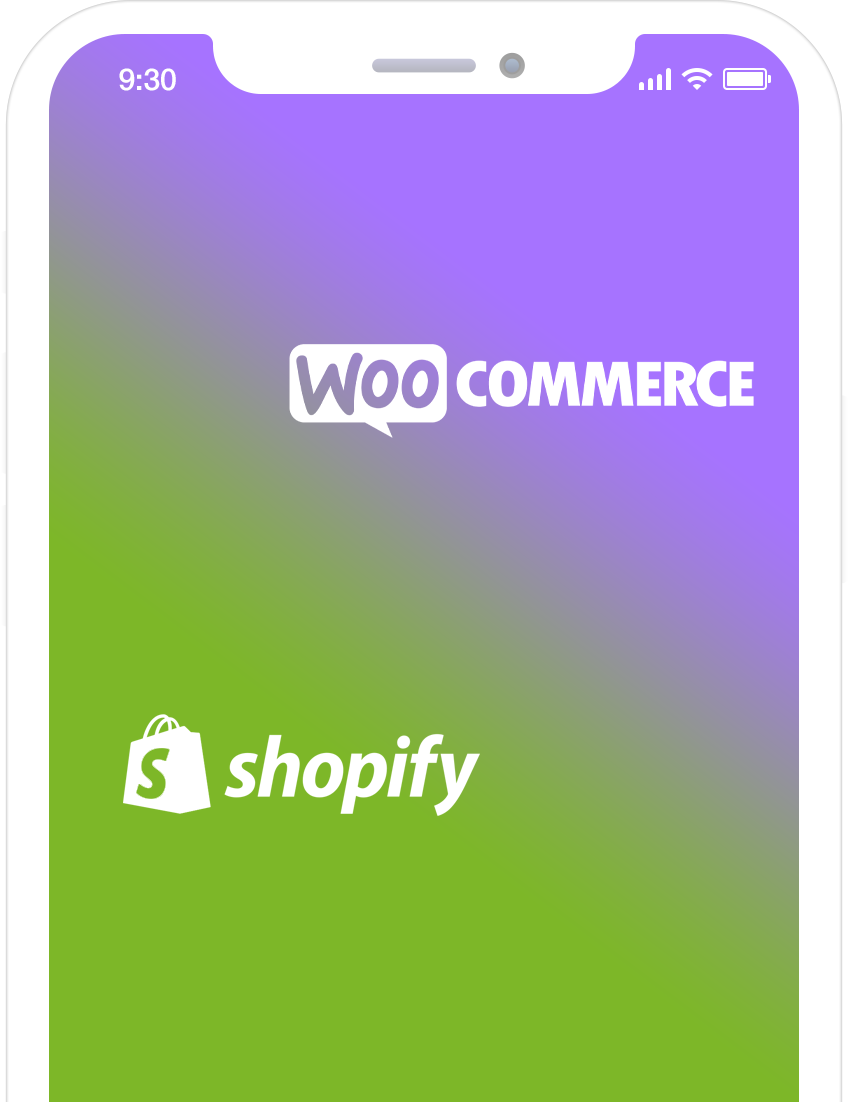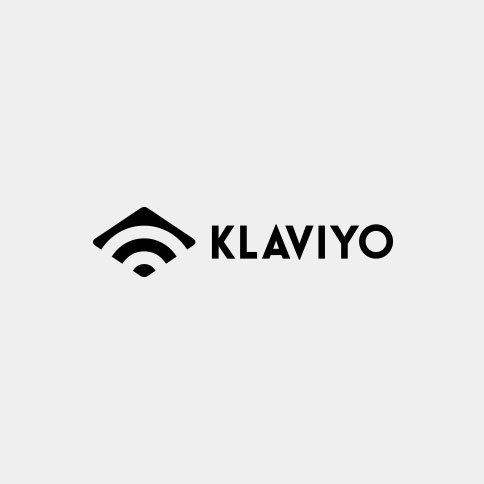Shopify VS Woocommerce: Which ecommerce platform is the best?
1. Shopify vs Woocommerce: A Comprehensive Comparison
Although it can be a challenge, it's incredibly important to choose an ecommerce platform that is right for your business to avoid long-term migration costs or poor performance. We might be a little biased as a Shopify partner and specialist - however, we've built multiple Woocommerce stores before becoming a
Shopify agency. So from a team that has delivered both Shopify and Woocommerce websites, here is our comparison of Shopify vs Woocommerce.
Shopify & Shopify Plus
Shopify, originally founded in Canada in 2006, is a complete ecommerce service and platform which has a business that covers almost every element of an ecommerce store. Shopify allows businesses to sell online with outstanding order/customer management and features that keep your customers coming back. Shopify merchants have access to thousands of trusted third-party apps - from the
Shopify app store. The capabilities of Shopify are continually developed by a network of expert technology partners, with news of technologies and apps being released every week to improve the quality of service that online stores can provide. Shopify acts as a complete solution; from hosting and security to day-to-day management for your business. Although Shopify does attract a monthly membership fee, you won't be disappointed with features, power or support, and this makes the prices of the tiered plans a lot more worthwhile.
If you are interested in learning more about Shopify - read our article here.

Woocommerce & Wordpress
Woocommerce is a plugin for WordPress that provides ecommerce functionality to any
WordPress website. Woocommerce is open source, meaning anyone can access the core code of the system. Woocommerce is the software upon the WordPress platform for you to sell online - it does not include hosting (you'll require a web hosting providers such as
Bluehost). WordPress and Woocommerce combined, offer a mixture of content, order, payment & inventory management to run an effective online store. As Woocommerce is an open-source web software - you can install it for free, it's a great choice if you are just getting started and don't wish to pay any monthly membership fees.
In this article, we've compared, each key decision-making factor that you should consider when choosing an ecommerce platform. What's important to note is you can achieve similar outcomes with both platforms when using the right designers and developers. In our view, it's the day-to-day management and long-term plans that should be what determine which of the two platforms you choose. We'll explore dashboards, sales tools, dropshipping and marketing to hosting and long-term capability. Please do
get in touch if you require additional consultation on which platform you should choose.
2. Ease of Use, Interface & Dashboard
A dashboard and the admin area are the back-ends of your website that allows you and your team to log in, and manage the website, orders, customers and more. Both Shopify and Woocommerce offer a complete back-end dashboard to update the entire e-commerce store and see analytics. Let's explore which is the best for ease of use. It is important to note that both platforms allow you to build
custom themes and both offer pre-built existing themes too. Something you should consider is whether you want a bespoke store or leverage an existing template before starting a Shopify or Woocommerce project.
Shopify's Dashboard
From a consensus, amongst merchants, but also with feedback from our fabulous clients, Shopify's ease of use is far superior to Wooommerce.
The dashboard of Shopify is built and geared for ecommerce stores online, it's not bloated with any other website-related tools - this can make navigating the back-end manager a lot easier. When you log into Shopify you are immediately presented with a snapshot dashboard so you can instantly observe how your store is doing in real-time! Viewing orders, customers & products is easy with a dedicated menu on the left-hand side - all presented in a clean and minimalist style making management a breeze. The dashboard of Shopify allows you to update store data with complete ease, and even manage the content with Shopify's native content management tool. Shopify has an edge for beginners and pros alike in ecommerce due to how good the user experience is which are key factors you should consider. Within a few clicks you can be setting up your store on Shopify and easily update your store as the nature of new business owners is to tweak the store without too many limitations - one of many reasons why users on the internet love Shopify.

Set up on Shopify is "fool-proof", the system will guide you through everything you need to do, all by yourself. Shopify is a hosted platform meaning you don't need additional hosting from third parties or security. The dashboard is also incredibly powerful - with enterprise plans, you can even manage multiple stores from one place too - it's equipped to deliver data quickly with tools that mean you can react immediately.
Learn more about Shopify Plus here. Technology shouldn't get in the way of efficiency and Shopify's management system is built for productivity that even the biggest technophobes can become familiar with very quickly. For those that don't need advanced functionality, there is a starter plan available that has more limited features for a cheaper price. There are courses available for those wanting to advance their skills using the platform to make the most out of the code and customization if needed. It's no wonder that Shopify is high in popularity for the variety of offerings it has for stores of all different types and locations.
Woocommerce's Dashboard
Woocommerce is often reported as a little less user-friendly, the plugin "piggy-backs" on Wordpress therefore you have to get familiar with both platforms to manage your store. We believe that Woocommerce is not as easy to find key features. Although once you are in Woocommerce's plugin, you can easily find products, orders and analytics in the sub-menu. Woocommerce will give you all the tools you require to add products, and images, and manage orders and customers too. However to achieve advanced discounts and integration with third parties you'll require additional plugins, apps or bespoke development.

3. Building A Store, Design, Themes & Customisations
What is important to note is you can get a very similar result using both platforms for the frontend experience for your customers as both are built using HTML & CSS. However, the process of getting set up, building a store, design choice and choosing a theme is different between the platforms.
Woocommerce
Getting a store set up on Woocommerce will take some advanced knowledge, along with understanding concepts such as Woocommerce extensions store and so on. Remember, Woocommerce is a plugin for WordPress and WordPress does not provide any hosting for your store. So first things first, you'll need to install WordPress on your server. Following this, you'll then need to install the Woocommerce plugin into WordPress. Once you have WordPress & Woocommerce set up and ready to go on your hosting space, that's when the fun begins! You can either choose a pre-built theme from a mixture of paid and free options in the theme store and Themeforest or work with web designer and developer experts to design a bespoke theme from scratch, with logo branding to match. Woocommerce allows almost limitless flexibility over every stage of an ecommerce website so from a design standpoint it won't hold you back! How good your Woocommerce store looks depends on how many hours you are willing to invest in designing a website that stands out from your competitors.

Shopify
Getting started on Shopify really couldn't be easier. The platform is fully hosted on Shopify's secure servers so you don't need to worry about finding a host, security or installing the Shopify system. Simply sign up online and you can get stuck in - creating your online store. You can even try and trial the system for a few days for free, note you will need to pay for a membership to accept payments. Similarly, Shopify offers a mixture of both free and paid pre-built themes to choose from. Shopify boats over 300 themes that are tailored to specific sectors, brand styles and product types. All themes are vetted by Shopify directly so they are very high quality and have a wide range of customisable elements that you control within the theme editor. Shopify allows teams (like us) to build bespoke themes too, so if you want a design that is unique and in line with your brand and business then get in touch! The design and development are almost limitless in terms of what Shopify allows us to design and build. The only area that is restricted is the checkout. Merchants do need to use the layout and design of Shopify's checkout, however, if you are on the top tier plan - Shopify Plus then you can make some customisations and also have unlimited staff accounts too.
To conclude our review of building a store, Shopify is easier to get started on without having to worry about server or security setup - but both platforms offer a similar level of choice for pre-built themes and the ability to start from scratch with expert knowledge. The only feature to note is, that Shopify only allows Plus members to be able to change the core structure and functionality of the checkout page.

4. Content Management with a CMS
You should always consider how easy it is to update and manage the content of your website, you're going to want to update content, add new products & change images fairly regularly.
Woocommerce
Woocommerce does not come with a content management tool on its own - it uses Wordpress's native CMS to allow users to change content. You'll need another tool if you want to have multiple areas of content per page to update. One of the most common, which is often included as standard with many pre-built themes, is the content management system called WPBakery - this will allow you to edit specific sections of a page from text, imagery and more. Another similar tool is called Advanced Custom Fields (ACF), ACF will allow you to make updates to individual parts of content. Standard Wordpress and Woocommerce offer product details and description fields - probably not enough on their own for a modern-day e-commerce store.
Shopify
Shopify comes with a visual page editor known as the
online store 2.0 theme editor to edit the storefront and edit key points onsite. This allows you to view each page of your store whilst editing content and imagery. Shopify splits each part of your website up into sections that you can update and edit.

Throughout the entire store, you can re-arrange sections within the page editor, add new sections and even create entirely new page templates to use without the need of a developer.. We love how easy content management is with Shopify without using additional tools. Individual page content and product page content are edited outside of the theme editor and are edited under "products" or "pages". Each page has the option for one large bulk of text that can be edited with a rich-text editor plus a page title. We understand a page will often have multiple elements and requires additional parts of content to be editable Shopify allows you to leverage metafields and metaobjects to apply dynamic data to different types of pages across your store.
To conclude, both platforms allow you to edit your content without requiring code knowledge (after it's built and set up) - however, we think Shopify's editor is much more visual and easier to update than Wordpress's custom fields process - a real contract in UI.

5. Ecommerce Features
Both platforms do offer features such as product, inventory, customer & discounts that you'll need to run an effective ecommerce store, however, there are a few areas that set them apart.
Cart Abandonment Notifications
Cart drop-out rates are a real thing! You'll inevitably lose some customers at the very last hurdle when they are about to pay. Shopify's system includes abandonment cart recovery emails. Simply put, if a customer types their email address at the checkout but does not complete the order and press pay - they'll receive a timely email reminding them what is in their cart. It's a great way to retrieve lost business - around 8% of abandonment cart emails lead to a conversion. If you want to achieve this with Woocommerce, you'll require a third-party provider!
Mutli-Channel Selling
Both platforms allow you to sell and sync with multi-channels such as Facebook, Instagram, Amazon and eBay. Shopify does not charge any additional fees for this integration however you will need to pay $79 to achieve this with Woocommerce - except for Facebook which is free.
Inventory Management
Shopify comes equipped with an easy-to-use and thorough inventory management system that allows you to keep track of stock throughout your entire business. Shopify will track stock as it's purchased, returned and even stored in different locations or warehouses. It's easy to update the data with the platform's built-in bulk editor or simply upload a CSV too. Shopify supports variants of products too to allow you track individual variations of products whilst all being saved under the parent product. In comparison, WooCommerce’s scalability options are limited. You do receive a degree of inventory control — mainly through in-built features like stock tracking and product variations — but you will also need to download plugins to access more features for different locations or automation. The platform lacks inventory automation, making managing your WooCommerce inventory much more challenging.
Shipping & Notifications
Both Woocommerce & Shopify will allow you to manage advanced shipping zones however Shopify really goes the extra mile through integrations with major Shipping providers. What this means is, when you fulfil an order you can simply paste a tracking code and immediately send your customer all the details they need with a simple check box. If supported, it will even send out-for-delivery and delivered notifications too - a great way to offer a seamless shipping experience for your customers.
Hosting
One of the main benefits of Shopify is the fact that it comes hosted automatically, so unlike WooCommerce, you do not need to manage the servers, hosting or security yourself. Shopify hosts all of its stores on its managed and highly reliable hosting infrastructure that boasts almost 100% uptime and can handle unrivalled peaks in traffic. WooCommerce is a plugin within WordPress which does not provide hosting. With WordPress, you'll need to source your servers and hosting and also require a developer to install WordPress into the hosting servers. Lastly, it will be hard to find hosting that is as reliable and as scalable as Shopify.
Checkout
With Shopify, it is important to note that the checkout is locked down whereas WooCommerce does allow developers to customise and change this part of the website. If you want to be able to customise the checkout experience on Shopify then you will require a
Shopify Plus plan membership and even then you do need to stay with the standard Shopify checkout layout and add additional customise to that rather than having the ability to change it completely. If you are looking for an entirely custom checkout experience then Shopify might not be for you, however, the UI customisations and logic changes you can do is growing with the Shopify platform.
To summarise, both platforms can be set up to achieve the same functionality however
Shopify sure has a lot more "out-of-the-box" and ready to go!
6. Plugins, Integrations & Extensions
Both platforms offer a wealth of plugins, extensions, software, and integrations to extend the functionality of your store. Also, being the two leading ecommerce platforms all major software companies will usually provide native integrations too.
Woocommerce
Woocommerce offers over 50,000 plugins however the platform as a whole relies very heavily on this. Too many plugins on a site can cause issues if conflicts between code occur. Woocommerce does have several very powerful and respectable plugins however we advise caution. Woocommerce is an open-source platform meaning almost anyone can create an app - always ensure app choice is carefully chosen to avoid security issues and bugs. Some state that WooCommerce plugins are challenging as it's difficult to know which are high quality, also the fact they will conflict with one another and as they get new updates the store can be affected.

Shopify
Shopify has fewer apps available than Woocommerce with around 9,000 published apps on the app store and is a closed platform meaning the apps that appear are controlled and reviewed directly by Shopify. Shopify has a dedicated process for app developers to prove their skills and expertise. To publish an app on the app store your app is reviewed directly by the app teams at Shopfy and you also have to be an approved technology partner of Shopify. That said we suggest always ensure you choose wisely and keep apps to a minimum. Too many plugins and apps on a store can increase speed time and risk conflict between them.
Shopify's support team can be great at recommending reputable apps too! Variations of use-cases such as
subscriptions, backups,
ecommerce seo, inventory and stock tracking, and more give merchants the freedom and capabilities to truly maximise their ecommerce experience and service offering. Anything is possible! See our hand-picked selection of
Best Shopify Apps and
custom Shopify app development.

7. Build Time & Developers
When choosing an ecommerce platform or comparing Shopify or Woocommerce we do advise you to consider how long it will take you to design, build and launch the store and of course the investment for each too!
Build Time For Shopify
Designing and building a store on Shopify is incredibly easy and the process of setting up a store can be completed quickly. When you create a new Shopify account the platform will walk you through getting everything set up. Shopify also offers over 300 different themes that you can opt for, customise and build out your store with. If you opt for a pre-built Shopify theme then you can set up a store in minutes - of course, you'll need to add all your products, add your content and adjust your settings but it's super quick. Shopify's admin UI is very user-friendly and makes it so easy to add products, edit pages and apply ecommerce settings. The development requirement is non-existent if you are happy with an off-the-shelf theme. You can expect the set up on Shopify to be a little longer if you have a large amount of data to add, wish to build your own bespoke theme or need designers and developers to tweak your existing one. On the whole, Shopify is one of the fastest platforms to set up.
Build Time For Woocommerce
In comparison to the build time of Shopify, building and setting up a new online store with Woocommerce will typically take more time. Woocommerce requires developers to set up or choose the hosting and install Wordpress onto the servers, you'll need to ensure the databases are set up and then install Woocommerce as a plugin into Wordpress. Once you've then got Woocommerce installed into your store, the platform itself is a bigger learning curve and the UI is not quite as easy to use. It can be more complicated to add themes to WordPress and you will need to account for the time required to customise the site. The way content is stored is not as easy as Shopify so content filling can be more time-consuming. There are several different resources and tutorials online to help merchants to set up their ecommerce store with woocommerce.
To summarise, we feel Shopify is much faster to set up than WordPress especially if you don't have advanced technical knowledge. The UI of Shopify is more self-explanatory.
8. Scalability and Performance
Now let's dive into how scalable the two platforms truly are. A platform may be great when you first get started but how do they hold up when you are managing thousands of orders every day and large amounts of traffic online?
Scalability of Shopify
When it comes to scalability Shopify is unrivalled. The platform supports brands that are just starting out up to some of the world's biggest ecommerce brands. Shopify allows merchants to add unlimited numbers of products, collections, pages and content with ease through the platform. Shopify's hosting also can manage unlimited amounts of traffic, so if you have a sudden jump in traffic when your TikTok post goes viral - rest assured Shopify's servers can handle it and your store won't crash. Shopify also offers a number of additional features in different tiers that scale with your business including
Shopify Plus & Shopify Advanced. Shopify comes equipped with an entire suite of
internationalisation features as you look to expand your business across borders. No matter which country you want to sell to, Shopify will likely have a solution for your business.
Shopify also offers the ability to track stock in different locations which can be vital as you expand your business.
Shopify Plus also brings a higher bandwidth of checkouts per minute for high-growth businesses. Shopify is not only a great choice for startups but also for fast-growing global enterprise businesses.
Scalability of Woocommerce
Now let's compare Woocommerce to Shopify and it's ability to scale. If we look at Woocommerce independently, then it is not as scalable as Shopify - out of the box. Shopify offers hosting and security with almost unlimited amounts of bandwidth no matter your size. As you scale a store on Woocommerce you'll need to consider additional hosting bandwidth and whether your servers can handle increased demand. In addition, woocommerce does not have as many different features dedicated to scale such as automation suites, internationalisation and dedicated checkout bandwidth. As you require more advanced features and functionality you may find that you are more reliant on developers or plugins for your woocommerce store.
9. Reporting & Analytics
Gaining the required data about sales, visitors and the entire business is vital for an ecommerce business to be able to scale over time! Businesses can use the data to understand growth and the impact of changes on-site.
Reporting on Shopify
Firstly, Shopify it's own reporting and analytics tool built natively to the platform, which merchants can use to see real-time data of conversion rate, sales, traffic and acquisition of customers too. Shopify also tracks additional metrics that can be helpful for your business such as returning customer rates and which channels delivered sales to your store. Shopify also offers several specific reports that you can generate, higher-tier plans deliver advanced reporting and the ability to create your own too.

Shopify also integrates with third-party reporting apps available on the Shopify app store such as TripleWhale and LittleData to offer more detailed or accurate analytics too. Shopify does come fully equipped with native integration to Google Analytics too, to enable you to sync ecommerce data between the two platforms.
Reporting on Woocommerce
Woocommerce does also have its own analytics dashboard with advanced filtering built into the platform. Arguably the UI is not as aesthetic as Shopify however does deliver the key metrics you'd expect. The Analytics tab drops down giving you data on orders, revenue, products, categories and more. You can integrate WooCommerce with other analytics tools such as Google Analytics however this does involve downloading a specific plugin file and would require technical expertise. Other analytics platforms do integrate with Woocommerce and some have plugins available too.

10. B2B and Wholesale Selling for Customers
The way businesses sell B2B and wholesale is rapidly changing, with more and more businesses using their online store to sell in bulk to their wholesale customers. Selling B2B can be achieved on both Shopify & Woocommerce however the approach is slightly different. So let's dive into the comparison of B2B on Shopify vs Woocommerce.
B2B on Shopify
If you decide to opt for Shopify's top tier plan, Shopify Plus, then you will have access to
Shopify B2B. Shopify B2B offers an entire suite of tailored and specific. B2B features that allow brands to adapt their store into a dedicated wholesale selling platform. Shopify B2B allows you to set up individual companies and assign customers to them and even give individual customers from a company unique permissions. You can offer different customers unique pricing, minimum and maximum order quantities, volume-based discounts and net payment terms. Shopify B2B is a power tool for businesses selling to wholesale customers. You can also make content changes on the website that displays for b2B Shopify also has several wholesale apps that merchants can download from the App Store including Wholesale Club and SparkLayer. If you don't choose Shopify Plus then these apps can be a great choice.

B2B on Woocommerce
Woocommerce does not natively have a B2B offering within the platform, however, there are a number of third-party B2B plugins that you can install to give the platform-specific B2B features. For example, the B2B for WooCommerce plugin gives the ability to add custom user roles like B2B, Wholesale and more, manually review B2B user registrations, hide prices and offer unique prices too.
Overall, Shopify's native B2B platform is a much more user-friendly way to manage B2B however does attract the high price plan of Shopify Plus.

11. Marketing Your Store
Marketing your store is vital for growth and getting new visitors to your site. Both platforms allow integrations with major marketing tools.
Email Marketing
Mailchimp is only natively supported on Woocommerce, regretfully Mailchimp and Shopify could not reach an agreement with terms and conditions. There are tools that allow you to integrate Mailchimp with Shopify however it fails to offer the ability to segment your customers based on order data. Klaviyo is a great alternative to Shopify with some comparable and arguably even better tools than what Mailchimp has to offer.
Social Media
You can integrate Facebook and Instagram by installing a plug-in on Wordpress/Woocommerce. Shopify you can add the integration with the click of a button and type your Facebook pixel ID directly intoy our store settings. Set up on Shopify is much easier. To integrate some third party tools you will need to pay on Woocommerce. Of course, you can also market your store using websites like YouTube by embedding videos into your online store and using
automatic transcription software for YouTube videos to make them more engaging.
Google Analytics & Search Console
You can integrate google analytics and search console by pasting some coding into your theme files on Woocommerce. Shopify you can set up google analytics by simply pasting your tracking ID in your Shopify settings and pasting some code for search console.
12. Payment, Fees, Pricing & Transaction Fees
When comparing Woocommerce & Shopify's monthly payment and payment fees it's important to remember what is being offering within each platform. Woocommerce is only the software to provide ecommerce functionality and does not include any hosting, security or integrations as standard.
Woocommerce
Wordpress & Woocommerce are free open-source platforms, this means you can install them onto your website completely free of charge. Woocommerce integrates with hundreds of payment processors / payment methods and the only fees you will pay are those charged by the processor themselves, such as Square. Things you may need to pay for on Woocommerce include additional integrations, apps, plugins but most importantly you'll be responsible for third party hosting and security. Woocommerce payments / woopayments are in abundance for both store owners and customers.
Shopify
Now Shopify is a software-as-a-service (SAAS) platform meaning it does attract a monthly fee. Depending on your requirements, Shopify's monthly membership fee depends on the tier you choose. The tiers are between $29 and $299 a month. For enterprise solutions you may consider Shopify Plus, starting at $2,000 a month.
Click here to learn more about Shopify Plus and the value it can bring your business.
Standard Shopify tiers are usually enough for SMEs. Shopify offers their own payment gateways called, Shopify Payments, which is charged from 2.2% + 20p to 1.6% + 20p depending on your membership tier. If you choose to use a third party payment provider such as PayPal for instance, you'll have to pay the transaction fees/commission of the provider plus an additional sur-charge cost from Shopify which ranges from 2% to 0.15% depending on your tier. Offering a variety of additional payment platforms such as Stripe, Klarna, and Amazon Pay can give customers flexiblility on how to pay, which in turn can help boost conversions. While in a lot of countries bank transfers and credit cards are default means of payment, offering variations and alternatives is highly recommended, especially if selling to a wide range of countries. What is important to remember is your web hosting and security is all included in the the monthly cost.
Click here to learn more about Shopify pricing to match it to your budget.
When looking at the Shopify Woocommerce debate, both platforms attract additional costs if you choose to add extra apps or services. It's important to weigh up what's included for each. We love how everything is included in one monthly price fee with Shopify including hosting and security, but Woocommerce is cheaper at its very core. In our eyes Shopify is a clear winner for the value it delivers.
13. Search Engine Optimisation & SEO Tools
Ranking organically on google is vital for your customers to find you when searching online. Both Wordpress & Shopify have SEO practices, tools and SEO plugins that can help you optimise your store to the max and rank highly on search engines!
Woocommerce
Woocommerce is a plugin for Wordpress and Wordpress is one of the world's most popular blogging platforms. Therefore, of course you get dive in and benefit from Wordpress's blogging functionality. To be able to update meta descriptions in your blogs, you'll need to install a plugin like Wordpress SEO features or Yoast as this isn't standard to Woocommerce. As we mentioned, Wordpress and Woocommerce are very plugin dependent. That said, you can still achieve the desired outcome with Woocommerce & Wordpress that meet your SEO needs.
Shopify
Shopify boasts SEO at it's core. The platform automatically generates a sitemap for google, easily update meta descriptions with search engine settings on each page and similar to Woocommerce - a blogging platform is integrated directly into Shopify. You won't need any third party apps to achieve search engine optimisation. The only tools you may wish use are SEO analytic tools such as Google Search Console etc.
14. Security & SSL Certificate Integration
Ecommerce website security is vital to ensure you are keeping your customers safe when they shop online in any category and industry.. Shopify includes the highest level of security with any membership - Woocommerce does not include any security or hosting so it's up to you to ensure the safety of your transactions.
Woocommerce
Woocommerce is only the software used to managed your ecommerce business and therefore you have to take extensive steps to ensure the store is entirely secure.
Shopify
Shopify offer security included for every membership and online store - you don't have to worry. They have an entire team dedicated to keeping your store secure to give you and your customers peace of mind.
SSL Certificate
SSL stands for Secure Socket Layer. An SSL certificate is responsible for safeguarding your website so personal information can’t be tampered with by cyber criminals. Shopify includes a SSL certificate for all merchants whereas Woocommerce does not. You'll need to find a hosting provider who include it or purchase one. SSL certificates ensure that transactions remain secure between you and your customer, provide trust with a browser padlock and also helps with SEO as SSL secure websites are favourable with Google.
PCI-DSS Compliance
This means that your website is set up to accept credit card payments in line with legal regulations. Shopify is level 1 compliant (the highest) meaning you are totally secure and in line with legal regulations. Woocommerce regretfully do not manage this therefore you'll need to take steps to ensure your store is compliant before selling to your audience.
Click here to learn the steps on making a woocommerce store compliant.
15. Customer Support & Community Forums
Running an ecommerce business isn't easy and often you'll need to lean on the support teams of your platform to support you with issues, and questions and help with using the platform. As you scale your business, assistance and support may become more important as the complexities of your business increase.
Support from Shopify
Shopify is renowned for its thorough 24/7 365 support for all of its merchants. Shopify offers live chat support to all merchants and for higher tier plans phone and email too. Shopify also has a thorough help centre and knowledge base that you can search or even use its AI chatbot to help you find answers quickly. You can also explore the forums that help you find answers to questions that other people have asked before. If you are a high-revenue business on the top tier plans, then Shopify Plus provides a dedicated account manager or gives you fast-track Shopify Plus support. Shopify also enforces strict rules for their app partners to provide fast and great support to their merchants too. This ensures that support from apps is good.
Support from Woocommerce
Woocommerce do offer good customer support with 24/7 live chat and email support. However it is important to note that this is as far as it goes, there are no dedicated account manages for fast-track support for larger revenue businesses.

Woocommerce do have forums, blog posts and lots of support and there is a large amount of online content from third parties to help you with setting up your store. Woocommerce is more of a self serve platform that does require you to take ownership of installation and on-going technical management.
This is an easy one for us to deliver a verdict. Shopify include 24/7 live chat and phone support so you are never alone when running your e-commerce business which is a key advantage. Regretfully for Woocommerce they only offer a ticket based email support system - not quite the same as live chat there and then. Both platforms offer a wealth of guides and documentation to help merchants online. If you are an enterprise customer and subscribe to Shopify Plus - you'll have priority support and even your own success and growth support manager assigned to your account. Based on the above comparison, it is clear that Shopify provides an overall superior level of customer support. It's 24/7 availability, dedicated account manager, and broad range of apps, plugins and add-ons make it a better choice for those who want to get the most out of their ecommerce platform. However, Woocommerce is still a great option for those who don't require extensive customer support or want to save money on their ecommerce platform.

16. Conclusion: Shopify vs Woocommerce - Which is a better platform for your ecommerce business?
Now we might be a little biased since specialising as a Shopify agency, but in our expert e-commerce web design agency opinion, we feel that Shopify really offers a complete package for ecommerce businesses of all sizes from start ups to complex global brands. If you are looking for a platform that doesn't require any monthly fees then Woocommerce is your go to choice, however we would advise you to think very carefully on all the amazing features you would be missing out on - plus the speed and ease of integrations on Shopify is outstanding. Yes, Shopify costs a small monthly fee but in return you'll have a platform that supports your business every step of the way. The bottom line is that we became a Shopify agency for a reason- we absolutely love the platform, it truly is the Apple of the ecommerce world, with many merchants, editors, tech partners and customers in agreement! We hope this article outlined some of the differences between Shopify and Woocommerce, get in touch if you have any questions.
Navigating the Shopify and Woocommerce world can be daunting. Aspects like customisation, navigation and layout are crucial when setting up a store. Hosting costs, domain name, and aspects such as pricing plans are key considerations for merchants when looking to use these platforms. Themes, deals, and discount codes enhance appearance. Coupons attract traffic, while TikTok and Pinterest integratoins offer marketing features. Testing installation ensures a smooth customer experience. There are many tasks required when considering which platform to use, so we hope this guide has helped provide an overview and glance of the benefits of each platform, any problems, and methods to make the most out of your sales channels. If you're looking to setup, upgrade or move your store to Shopify, Charle is available to make the process as seamless as possible.
Looking for a Shopify or Shopify Plus Agency?
We are a Shopify and Shopify Plus specialist agency in London. We work with ambitious brands to design, develop and launch ecommerce solutions for growth. Get in touch today if you'd like learn more!
Frequently Asked Questions: Shopify Vs Woocommerce
Which is easier to use, Shopify or WooCommerce?
When comparing how easy both Shopify and Woocommerce are to use - typically we see users preferring Shopify over Woocommerce as the UI is self-explanatory and easier to understand. Shopify also has a CMS that includes a drag-and-drop style editor allowing merchants to set up a new store, quickly without the need for a developer to set up hosting, security or installation. Shopify also has lots of features ready to go out of the box meaning there is less reliance on plugins. However, woocommerce does offer great customisability, especially within the checkout area - yet does require more technical expertise to understand how to set it up and edit it.
How I migrate between Shopify & Woocommerce easily?
Migrating between Shopify and Woocommerce is possible and can be straightforward however it does take a bit of time, planning and skilled experts to achieve it. The process includes exporting product data, customer data and order history into CSV files. Following this you'll then need to manipulate the data into the format that either platform requires. Secondly, you can then either import the data directly into the platform, or you may need a dedicated app or plugin that imports data for you. There is a wide range of considerations that need to be taken into account such as SEO redirects if you are moving pages, payment information and how products sync to past orders.
Migration to Shopify with Charle
How does SEO functionality differ in Shopify and WooCommerce?
Both Shopify and WooCommerce do have SEO functionality but do differ in their approaches. Firstly, Shopify is a hosted platform and will automate some of the SEO requirements. Shopify automatically generates a sitemap and allows you to update the robots.txt file. Every page, product, collection and blog post on Shopify has SEO settings such as page title and meta description that you can update without any coding knowledge. Lastly, approved Shopify themes come fully equipped with the appropriate schema to share data about products with Google. WooCommerce is a little different as you'll typically need to opt for a dedicated SEO plugin to help you manage your ecommerce store, detailed content analysis and schema markup. If you are looking for
Shopify SEO support get in touch.
Is hosting included with Shopify or WooCommerce?
The hosting that Shopify provides every merchant is a key differentiator when comparing Woocommerce and Shopify. Shopify offers every merchant hosting included and as soon as you create your Shopify accout is instantly set up and available, you don't need to manage any of this yourself. Woocommerce on the other hand, does not offer hosting. You'll need to find a hosting provider and install WordPress and woocommerce which does require significant technical skills. Shopify bundles everything into their subscription prices allowing brands to focus on growing and managing their ecommerce business without worrying about servers, security or performance issues too. The average ecommerce brand will prefer to focus their time on growth, results and operations than technical concerns, source code, maintenance, hosting provider, payment options or more. Thanks to Shopify, the contrast means brands can reep the advantages of the user-friendliness, compatibility and other great features the platform brings to meet the business needs of ecommerce brands.
How does payment procesing work in Shopify and Woocommerce?
Shopify has its dedicated checkout that integrates with its payment processor called Shopify Payments or you can integrate compatible third-party gateways easily through the admin. Shopify Payments allows you to accept debit and credit cards alongside accelerated payment methods including Apple Pay and Android Pay. Woocommerce does allow more control within the checkout area of the store, however, you do need to integrate a payment processor such as PayPal, Stripe and Authorize.NET as Woocommerce does not control this part of the ecommerce store in the same way that Shopify does.
What security features does each platform provide?
Woocommerce and Shopify both include powerful security features that originate from the core way that they are built. Shopify provides the hosting, SSL certificates and PCI complaints by default. Shopify also has dedicated security teams to keep the architecture safe from threats. WooCommerce however does rely on the security provided by the hosting provider of choice, it also does rely on the merchant choosing security plugins, and SSL certificates - Woocommerce places more focus on the user to implement security features whereas Shopify does all of these on behalf of it's merchants so they can focus on growing their businesses.





























